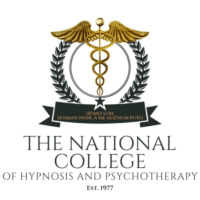Alison Leverett- Morris (NCHP Tutor in Oxford)
July sees a brand new intake of students for NCHP in Oxford and we very much look forward to welcoming them. We are extremely proud of the talent and dedication of our tutors at all of our training venues. Alison Leverett- Morris heads up the training in Oxford and has herself trained and graduated through NCHP. For those of you joining us in Oxford or those of you who don’t know yet know Alison, here is your opportunity to get to know a little more about her.
Hi Alison, Can you tell us a little bit about your work as a hypno-psychotherapist?
My work has four distinct “strands”. Variety in my working life, is just one of the many things that I love about hypno-psychotherapy as a profession. It sounds cliché, but no two days are the same and I find this energising.
The “heart” of my work is my private practice. I see clients both short and long-term. Many of my clients choose to continue our work together (when their initial presenting issue has resolved) for reasons of personal growth. I enjoy the balance between brief and longer-term therapy. It is such a privilege to witness someone fully step into the life they want and deserve.
Before Covid-19, I ran a separate practice offering psychotherapeutic support for women experiencing infertility. This practice has now morphed into an online business (Fertile Mind and Body). I am currently very busy developing digital trainings and resources that will be more accessible to those who struggle to afford one to one therapy.
I also work in the corporate sector and have a contract with a medium sized company. My work here includes 1:1 sessions for the senior directors and managers. These men and women are free to bring both personal and professional issues to the confidential space. Some choose to engage in a deep phase of work, others choose to meet for a quarterly “check-in”. In addition to the one to one work, I also support the Managing Director and HR Director on wider organisational issues. This could be anything where an understanding of human behaviour and needs is useful: facilitating team days, resolving conflicts, exploring team dynamics or supporting the organisation to identify ways to better support employee wellbeing.
Last, but not least, I teach hypno-psychotherapy for NCHP.
Speaking of NCHP, what is it that you particularly enjoy about teaching?
I very much enjoy the experience of group dynamic that teaching brings. National College attracts fabulous students! Each group is different, but in every group there is a wealth of life experience. I enjoy getting to know the students and supporting them to develop in confidence, experience and expertise.
I am passionate about contemporary and ethical hypno-psychotherapy. I value the opportunity to share my experience and contribute to the profession. I enjoy teaching. In particular I enjoy supervising students’ case studies and witnessing their growth in confidence as they take their talents and expertise out into the world.
For those readers who don’t know you, you have a particular interest in the mind body approach to health conditions could you tell us a little more about your work in this area?
Yes, I work with clients experiencing a broad range of conditions such as infertility, amenorrhoea, migraine, irritable bowel syndrome, skin conditions and a broad range of medically unexplained physical symptoms.
Some clients come to see me specifically because of their physical discomforts – frequently as “a last resort” having exhausted all other avenues! For other clients, physical discomforts are not their presenting issue – but are shared as therapy progresses. Either way, it is deeply satisfying (for myself as well as the client) when a mind-body approach leaves them feeling like they have found the missing piece of a jigsaw.
Mind-body medicine is a rapidly growing field supported by an ever-increasing body of research.
Earlier this year I contributed a chapter to a book on infertility and IVF. This book is the first, and only, book published which includes a contribution from the HFEA (the UK Government’s regulator for human fertilisation and embryology).
The inclusion of “my chapter” (sitting alongside contributions from globally acclaimed medical professionals) is testament to the increasing recognition and respect for mind-body approaches such as hypno-psychotherapy.
Personally, I don’t see the mind and body as separate entities and I am endlessly curious about somatic expression and the shifts and resolution of “physical symptoms” that commonly result from psychotherapeutic work.
And finally as both a previous student and now as a tutor, I wonder if you have any words of wisdom for our students just starting out on their journey?
Let the learning happen just as it does. Psychotherapy is a process and so too is training to be a psychotherapist. Read widely, embrace supervision and don’t skip the personal therapy! Trust your process and you will find your way.

